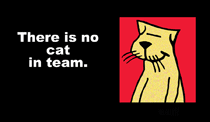Need Teamwork? Maybe Not
 Does your team work together? No, I don’t mean do they cooperate, collaborate, and have a culture of kumbayah. Do they physically work together every day? This is an important question to ask as it can change the way you manage, save you time, and resources.
Does your team work together? No, I don’t mean do they cooperate, collaborate, and have a culture of kumbayah. Do they physically work together every day? This is an important question to ask as it can change the way you manage, save you time, and resources.
Recently, I had the opportunity to deliver a program to a group of mid-level executives, each in a different city and in charge of a different market sector for their organization. The manager, a VP in the organization was intent on teambuilding and that had been his management focus. However, during the program, one of the participants stated aloud that he found no benefit in their weekly teambuilding phone calls. Ouch!
The executive and I looked at his team and he realized that that they don’t work together or even depend on one another for resources or business. While that is true, I pointed out to the manager that the concentration should be on having his team focus on the strategic plan, ensure that each of his managers buys into the vision for the organization, and then drive that vision throughout their own teams. But don’t they still need to collaborate and cooperate? Glad you asked.
 On one hand, culture appears to be too full of fluff for some leaders. Phrases like, “I’m not here to make friends, I have a business to run!” come to mind. On the other hand, phrases like “Our culture drives productivity, great customer service, and that grows profits.” might waft through the corporate rafters. So which is it? Is culture a hard or soft business element? In a word, yes. Culture is a two headed monster that dares you to wrestle with it…and wrestle with it you must.
On one hand, culture appears to be too full of fluff for some leaders. Phrases like, “I’m not here to make friends, I have a business to run!” come to mind. On the other hand, phrases like “Our culture drives productivity, great customer service, and that grows profits.” might waft through the corporate rafters. So which is it? Is culture a hard or soft business element? In a word, yes. Culture is a two headed monster that dares you to wrestle with it…and wrestle with it you must. Last week’s blog,
Last week’s blog, 
 Do you have spooky team members who haunt you with their behaviors and communication styles? You know, those team members who frighten you because of their aggressive nature. Another spooky team member might be the one who is so flighty you expect to see them flying around the office and they don’t even need a broom! Or how about the strong, silent, team member? You know, the one with the face made of stone. No one can ever tell what they are thinking. Are they plotting, are they happy, or are they hiding some deep, dark and dangerous secret? Or how about the team member who is so literal, will not make a move unless there is a rule involved? Yes, the ones, who take so long to make a decision that you think if you walk by their office, you will see cobwebs growing around them. Here’s the really scary part, one of these is you!
Do you have spooky team members who haunt you with their behaviors and communication styles? You know, those team members who frighten you because of their aggressive nature. Another spooky team member might be the one who is so flighty you expect to see them flying around the office and they don’t even need a broom! Or how about the strong, silent, team member? You know, the one with the face made of stone. No one can ever tell what they are thinking. Are they plotting, are they happy, or are they hiding some deep, dark and dangerous secret? Or how about the team member who is so literal, will not make a move unless there is a rule involved? Yes, the ones, who take so long to make a decision that you think if you walk by their office, you will see cobwebs growing around them. Here’s the really scary part, one of these is you! Recently, one of my executive coaching clients was pulling his hair out over people in one department who were always complaining about his team. His team complained about the other team – of course. His team is essentially sales and the other team is policies, procedures, and compliance. You might as well try to mix oil and water and try to make a soufflé. What is it that has these teams all in a twitter?
Recently, one of my executive coaching clients was pulling his hair out over people in one department who were always complaining about his team. His team complained about the other team – of course. His team is essentially sales and the other team is policies, procedures, and compliance. You might as well try to mix oil and water and try to make a soufflé. What is it that has these teams all in a twitter? We all know that no one individual is totally responsible for the success of an organization or for any project. We also know tht we can’t do everything. It’s not just the time factor, but that we simply do not possess every talent or skill needed for projects to run today’s increasingly complex organizations. Rather a team of diverse people with diverse talents, skills, and attributes are required. Moreover, we are constantly reminded of how much we should appreciate our teammates and their particular brand of talents. Why are strengths so important?
We all know that no one individual is totally responsible for the success of an organization or for any project. We also know tht we can’t do everything. It’s not just the time factor, but that we simply do not possess every talent or skill needed for projects to run today’s increasingly complex organizations. Rather a team of diverse people with diverse talents, skills, and attributes are required. Moreover, we are constantly reminded of how much we should appreciate our teammates and their particular brand of talents. Why are strengths so important? If you hire that candidate, I’ll quit!
If you hire that candidate, I’ll quit!